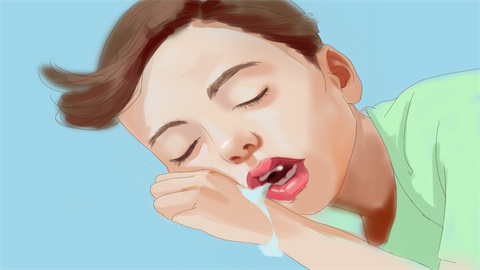Can AIDS be transmitted through saliva?
Generally speaking, whether AIDS can be transmitted through saliva mainly depends on whether there is a bleeding wound in the individual's mouth. If there is no wound and the virus level in the saliva is low, effective transmission cannot occur. However, under special circumstances such as oral mucosal damage, saliva might carry sufficient virus that could enter the bloodstream through the damaged area and cause transmission. Detailed analysis is as follows:

In normal daily interactions, such as sharing meals, engaging in polite kissing, or drinking from the same cup, the human immunodeficiency virus (HIV) is not transmitted through saliva. This is because the concentration of HIV in saliva is extremely low, and certain components in saliva have an inhibitory effect on HIV, making simple contact with saliva unlikely to allow the virus to enter the body and cause infection.
However, if an HIV-infected individual has a bleeding wound, bleeding gums, or oral ulcers, and the other person also has oral mucosal damage, and there is significant exchange of saliva between the two parties, it is possible for HIV to enter the other person's body through blood-to-blood contact, thus causing transmission. Additionally, deep and prolonged kissing, especially when both individuals have oral injuries, may also carry some risk of transmission.
In daily life, it is important to avoid high-risk contact, maintain a healthy and monogamous sexual relationship, use condoms correctly, and avoid unprotected sexual activity, all of which help prevent the transmission of AIDS.










